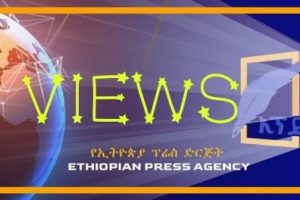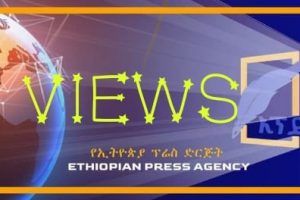Ethiopia has long been a supporter of multilateralism. This goes back to the founding of the League of Nations and the development of the United Nations when Ethiopia was a world leader in calling for multilateral support in preventing colonialism and domination. More recently, Ethiopia has taken on important roles in international peacekeeping around the world. The ongoing contributions and commitment by Ethiopia throughout the 20th and into the 21st century cannot be in doubt. However, multilateralism can be a tool for domination, as is clear in many instances of neo-colonialism through economic, institutional, and other means. So, it must be subject to scrutiny, while maintained in efforts for global continued collaboration.
The situation in Ethiopia at present is one that requires a great deal of multilateral support, but this must be done with consideration of the recent context of the country and the need for a building of democratic institutions and culture. The recent violence in the Tigray region is a clear example of the fragility of the situation. The TPLF, the regime that controlled the country for more than two decades, was well documented in its human rights abuses and violence. Only following repeated and growing public protests was there any change. These protests were met with violence, but they were not deterred. Ethiopians want change for the better.
The transition under Prime Minister Abiy Ahmed has been clearly reformist, with efforts to release political prisoners, open the country to political oppositions members previously identified as “terrorists” for their opposition, and efforts at gender equality in political leadership. However, the decades of institutional violence by the TPLF requires a great deal of work to address and heal. The TPLF refused repeated efforts by the government for peaceful dialogue, and instead lashed out in terrible violence. It is a situation that will take a great deal of work to heal.
What is needed from international partners through multilateralism is support for this healing process, working with the efforts that the government has initiated, particularly through the Ministry for Peace. However, we are seeing a great deal of misinformation and accusations coming from a range of sources. Most disturbing are those coming from Dr. Tedros Adhanom, President of the World Health Organization, who is using his significant influence to support a toxic narrative being put forward by the TPLF.
Ethiopia as the founding member of the League of Nations, later the United Nations and many other multilateral organizations and the largest contributor of the UN peacekeeping force is strong believer in multilateralism that is just and respects the sovereignty and territorial integrity of all member states. However, what we have been observing is a display of behaviour that is rooted in moral corruption and street gangsterism.
Ethiopia is longing for peace and the support of the global community to achieve this goal is most welcome. However, the global community also has a responsibility to ensure that it is lead by an understanding of the complex reality of Ethiopia and by respect for the efforts being made by the government that is working to rebuild a country that has been dismantled and devastated. We hope that these efforts for support will come forth, as we work for a better future and for healing.
BY DIGAFIE DEBALKE
The Ethiopian Herald May 13/2021




